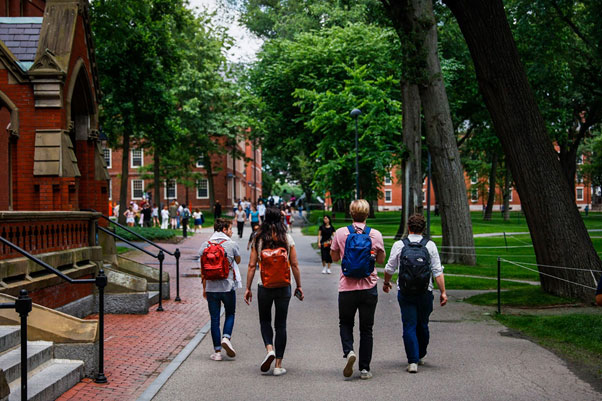
Harvard University is currently facing allegations from minority groups, claiming that the renowned institution has violated federal law by giving preferential treatment to children of alumni and wealthy donors during its admissions process. These accusations come shortly after the US Supreme Court ruled against using race-based affirmative action policies.
The complaint asserts that Harvard College provides particular preference to hundreds of predominantly White students each year solely based on their family connections rather than their achievements. The minority groups call for a thorough investigation into Harvard's use of donor and legacy preferences and demand that the institution end this practice to avoid jeopardizing federal funds. Furthermore, they urge Harvard to ensure that applicants with family ties cannot identify themselves during admissions.
Harvard has declined to comment on the complaint. During the Supreme Court arguments, Justice Neil Gorsuch suggested eliminating legacy preferences, which grant an advantage to children of alumni, athletes, and major donors. However, colleges have hesitated to abandon these preferences due to their role in maintaining donor satisfaction.
While the Massachusetts Institute of Technology has long held a policy against legacy admissions, only a few other selective colleges, including Amherst College and Johns Hopkins University, have adopted similar practices. The Chica Project, the African Community Economic Development of New England, and the Greater Boston Latino Network filed the complaint. These groups denounce legacy admissions as an unfair and undeserved benefit solely based on an applicant's family background.
Ivan Espinoza-Madrigal, executive director of Lawyers for Civil Rights, who represents the groups, emphasizes that an applicant's family name and financial status should not be considered merit in college admissions. He asserts, "Your family's last name and the size of your bank account are not a measure of merit and should have no bearing on the college admissions process."
The Supreme Court ruling originated from a lawsuit filed by Students for Fair Admissions, an organization opposed to preferences in admissions, led by former stockbroker Ed Blum. Blum emphasized his organization's previous statement, asserting that eliminating legacy practices at Harvard is long overdue.
The complaint argues that as a recipient of substantial federal funds, Harvard is bound by landmark civil rights laws that prohibit practices leading to unjustified disparate impact based on race.
In anticipation of the Supreme Court ruling, a study by Georgetown University in March urged selective colleges to eliminate their legacy policies. The study, titled "Race, Elite College Admissions, and the Court," argued that doing so would help these universities maintain their limited levels of diversity.
As the allegations against Harvard continue to unfold, the outcome of the complaint and its potential impact on legacy admissions practices at the university will be closely monitored. This situation highlights the debate surrounding fairness and equal opportunity in college admissions.





